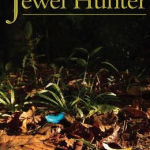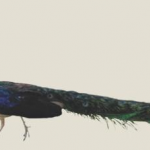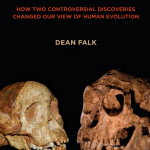Life Sciences
“If the Universe Is Teeming with Aliens… Where Is Everybody?” -Stephen Webb
It's one of the biggest conundrums in the Universe, known as the Fermi Paradox: if the Universe is so conducive to life, and if there are so many opportunities for it within our galaxy alone, why isn't there any evidence (outside of the History Channel) of extraterrestrial life?
Image credit: Peter Essick, via National Geographic.
Moreover, why haven't we been visited by some extraterrestrial intelligence? After all, given the fact that our Universe is nearly 14 billion years old, while our galaxy itself is…
Humans appear to have a great deal of variation in sexual orientation, in what is often referred to as "gender" and in adult behavior generally. When convenient, people will point to "genes" as the "cause" of any particular subset of this diversity (or all of it). When convenient, people will point to "culture" as the "cause" of ... whatever. The "real" story is more complicated, less clear, and very interesting. And, starting now, I promise to stop using so many "scare" quotes.
Fixed up and reposted.
Prior to birth there are a number of factors than can influence things like gender or…
Minnesota has two populations of moose, one in the northwestern part of the state, one in the northeastern part of the state. Both are in decline. The decline seems to be mainly due to disease, which in turn, seems to be exacerbated by the occurrence of shorter, warmer winters and longer summers.
Today, the Minnesota DNR is announcing an indefinite halt to the annual moose hunt, because the latest surveys show that the population is in very serious decline. From a brief preliminary report in the Star Tribune:
Based on the aerial survey conducted in January, the new population estimate is…
Valentine’s Day is coming up, so it is time to think about kissing. Pursuant to this, Sheril Kirshenbaum, author of “The Science of Kissing,” has made the Kindle version of her excellent book available at a discounted price through February 18th. The book is here: The Science of Kissing: What Our Lips Are Telling Us. (Sheril is also the co-author of Unscientific America: How Scientific Illiteracy Threatens our Future.)
The Science of Kissing
Further details as well as a video (don’t worry, it’s work safe) are here, on Sheril’s site.
Also pursuant to Valentine’s Day, I thought it…
Some recent Facebook updates of mine:
After four years' living in this house I just stubbed my toe on the bathrooom threshold for the first time -- painfully. Unusually, I was wearing semi-industrial hearing protectors on my way to the john -- because also unusually two people were watching TV at the same time and so the sound was on (I can't write with speech in the background). Now I wonder -- am I unconsciously in the habit of using the acoustics of our rooms to remember where I need to mind my step?
To solve the US gun problem, impose a 1900% luxury tax on ammo. Let the people bear arms…
Common misconceptions and unproven assumptions about the aquatic ape theory
A Guest Post by Marc Verhaegen
*2013 m_verhaegen@skynet.be
It is often assumed that Alister Hardy’s and Elaine Morgan’s aquatic ape theory (AAT) suggests that more than 5 Ma (million years ago) there was a semi-aquatic phase in our past (explaining e.g. human fur loss, fatness and upright bipedalism), which was followed by a savanna phase on the African plains. In 2011, AAT proponents published an eBook, Was Man more aquatic in the past?, which showed a rather different picture of AAT. Here I very briefly describe my…
Another list for your reading, gift-giving and collection development pleasure.
Every year for the last bunch of years I’ve been linking to and posting about all the “year’s best sciencey books” lists that appear in various media outlets and shining a bit of light on the best of the year.
All the previous 2012 lists are here.
This post includes the following: Top Books of 2012: History of Science, Paleontology , Zoolology.
Islam, Science, and the Challenge of History by Ahmad Dallal
Smoking Ears and Screaming Teeth: A Celebration of Scientific Eccentricity and Self-Experimentation by Trevor…
[This past fall, I taught a course at Emerson College called "Plagues and Pandemics." I'll be periodically posting the contents of my lectures and my experiences as a first time college instructor]
In my first lecture, I used Powerpoint (well, technically Keynote), but I personally like chalk-talks a quite a bit more. Never mind the fact that classrooms never seem to have chalk boards any more, I like taking the time to write out important points, draw diagrams on the fly and connect with the material a bit more than just clicking through to the next slide. My students did not…
"The animals of the world exist for their own reasons. They were not made for humans any more than black people were made for white, or women created for men." -Alice Walker
This weekend -- perhaps inspired by the growing friendship between our new dog and our old one -- I've got a surprising find along with a sweet White Stripes song for you,
We're Going To Be Friends.
Every once in a while, I'll run across something in the natural world that wholeheartedly surprises me. I remember watching a nature documentary about lions, where I saw a wounded, pregnant lioness leave her pack to give birth…
The most memorable remaining landmark from Montreal’s fabulous Expo 67 is the giant geodesic dome designed by architect, engineer and futurist Buckminster Fuller (1895-1983) for the U.S. pavilion. The magnificent 62 meter high dome now houses an environmental museum known as the “Biosphere.” Fuller, who dreamed of energy efficient homes, recycling and global sustainability long before these ideas became fashionable, would be pleased. But the famous inventor, writer and designer surely never dreamed that his name would be immortalized in numerous chemistry journals, lectures and textbooks. “…
[This past fall, I taught a course at Emerson College called "Plagues and Pandemics." I'll be periodically posting the contents of my lectures and my experiences as a first time college instructor]
Most of this post was written back in September, when it still seemed possible that I would be able to teach the class, write the blog and do science. Please forgive any anachronisms that I failed to purge.
Last time, I talked about what science is and why it's awesome. This is the first half of lecture 2, which was originally given on 11 September, 2012.
Lecture 2a (reading: Zimmer - The…
Another list for your reading, gift-giving and collection development pleasure.
Every year for the last bunch of years I’ve been linking to and posting about all the “year’s best sciencey books” lists that appear in various media outlets and shining a bit of light on the best of the year.
All the previous 2012 lists are here.
This post includes the following: Audubon Magazine’s 2012 List of Notable Books.
In the Field, Among the Feathered: A History of Birders and Their Guides by Thomas R. Dunlap
Bird Sense: What It's Like to Be a Bird by Tim Birkhead
How to Be a Better Birder by Derek…
The Jewel Hunter by Chris Goodie is the story, generally chronological, of one man's quest to observe, in nature, every known species of a rare and typically elusive bird: the Pittas. Oh, and all in one year. For a birder, this is the rough equivalent of buying some impossible to pay for sports car as a symptom of midlife crisis. It required being bitten by leeches and scared by snakes.
The Pittidae is a family of songbirds distributed in the Old World, mainly in Asia and Australia, but with a few species in Africa.
They tend to live in rain forests or at least, denser woodlands and…
Another list for your reading, gift-giving and collection development pleasure.
Every year for the last bunch of years I’ve been linking to and posting about all the “year’s best sciencey books” lists that appear in various media outlets and shining a bit of light on the best of the year.
All the previous 2012 lists are here.
This post includes the following: Library Journal Consumer Health, Memoir, Science & Technology.
No Time To Lose: A Life in Pursuit of Deadly Viruses by Piot, Peter
Hallucinations by Sacks, Oliver
The Undead: Organ Harvesting, The Ice-Water Test, Beating-Heart…
A friend of mine told me this story: As a special forces soldier, a Green Beret, he was alone and traveling through a dense area of jungle in or near Viet Nam during the 1960s. Enemy soldiers were nearby and he intended to pass through their patrol area to arrive at some safe destination, but he fully expected to run into a trip wire, a sentry, or a squadron of hostiles. His rifle was loaded and ready to fire at any moment.
Suddenly, a figure loomed in front of him. Without waiting for even a fraction of a second, he fired on it with lethal effect. The figure fell to the floor of the jungle…
This is another addition to my αEP series about evolutionary psychology. Here's the first, and unfortunately there are several more to come.
I have a real problem with evolutionary psychology, and it goes right to the root of the discipline: it's built on a flawed foundation. It relies on a naïve and simplistic understanding of how evolution works (a basic misconception that reminds me of another now-dead discipline, which I'll write about later) — it appeals to many people, though, because that misconception aligns nicely with the cartoon version of evolution in most people's heads, and it…
I usually allow my honorary older brother, John Michael Greer to debunk the idea of the apocalypse, Mayan and otherwise. He's even written a (very funny and, as usual, brilliant) book about it, and he's the master of historical examples in which everyone was pretty sure the world was going to end and it didn't. While I tend to think that we are closer to a collapse (a word I use in its technical sense, meaning big step down in complexity and function) than most people admit, I am very far from thinking that this will be the end of the world, a term that I think is largely…
Nature is a potential source of guidance for our behavior, morals, ethics, and other more mundane decisions such as how to build an airplane and what to eat for breakfast. When it comes to airplanes, you'd better be a servant to the rules of nature or the airplane will go splat. When it comes to breakfast, it has been shown that knowing about our evolutionary history can at times be a more efficacious guide to good nutrition than the research employed by the FDA, but you can live without this approach. Nature works when it comes to behavior too, but there are consequences. You probably…
The Fossil Chronicles: How Two Controversial Discoveries Changed Our View of Human Evolution is by a scientist Dean Falk, who has contributed significantly to the study of evolution of the human brain, and who has been directly involved in some of the more interesting controversies in human evolution.
Back when I was a graduate student I was assigned by my advisor a set of literature to absorb and comment on. The mix of published and soon to be published papers included a series of papers written by Ralph Holloway and Dean Falk. These represented a fight over the interpretation of early…
On March 11th, 2011, the Fukushima Daiichi nuclear power plant complex suffered damage from an earthquake and ensuing tsunami that caused multiple nuclear reactor core meltdowns and melt-throughs, explosions, and major releases of radioactive material into the air and the sea. In addition to the reactor meltdowns and melt-throughs spent fuel storage tanks were also damaged and probably contributed to the release. It took about a year for the plant to reach a condition that was stable enough that we stopped checking it every day to see if new bad things were happening. Heroic efforts were…






